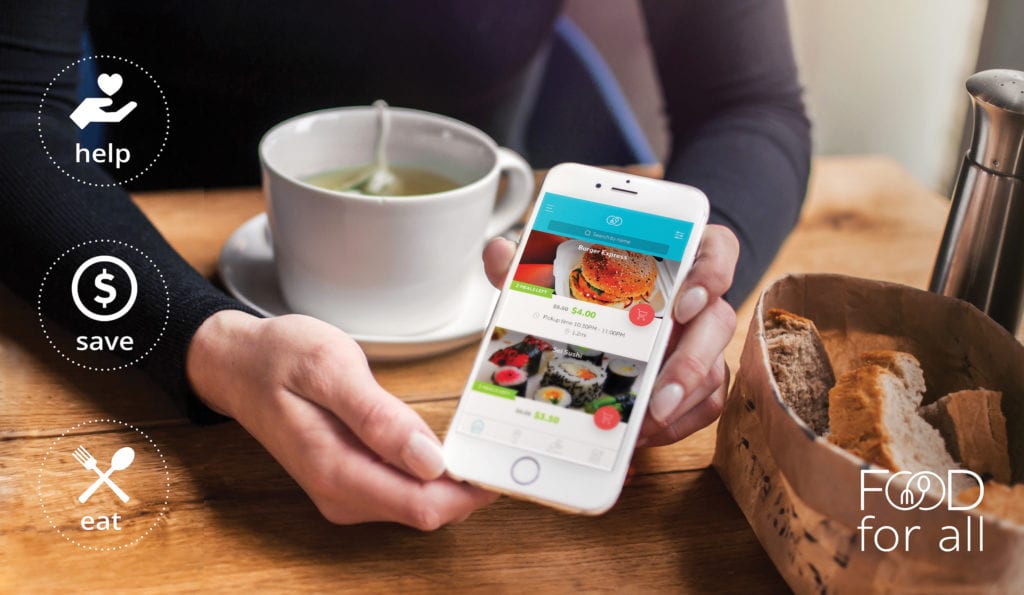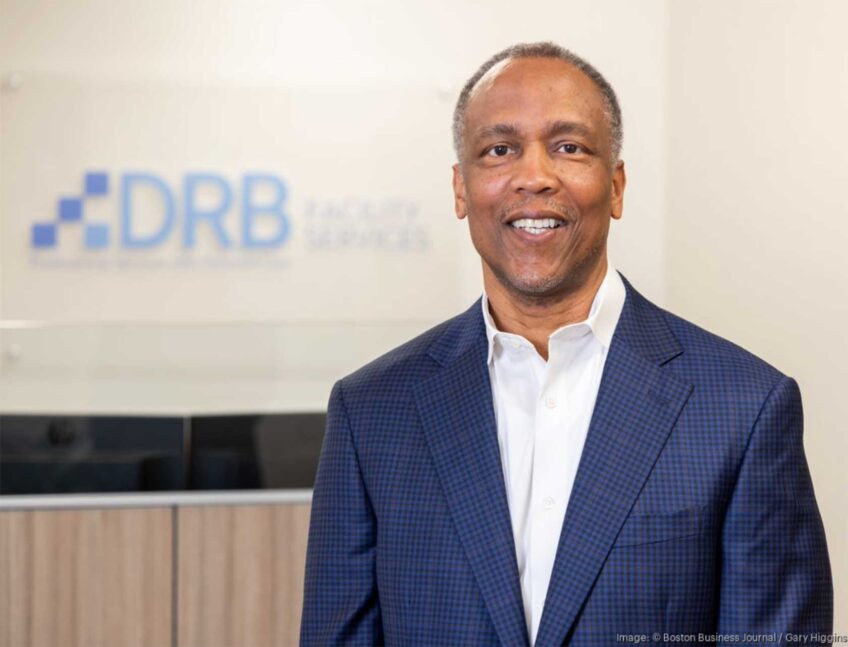An app-etite for food sharing
Startup saves restaurant food waste and customers money

A Boston-based startup is cutting down on food waste produced by the local food industry while providing affordable meals to consumers and increasing revenue for restaurants.
Users of the Food for All app can purchase surplus food items or meals, for up to 80 percent cheaper than their original price, and pick them up from the restaurants either in the afternoon, when businesses change from their morning menu to their afternoon menu, or an hour before closing time.
The startup’s co-founders, David Rodriguez, Sabine Valenga and Victor Carreño, built the app after raising more than $50,000 with a Kickstarter campaign in 2016. In 2018, the app officially launched on the market.
More than 60,000 users are on the app. The platform has 130 participating restaurants in Boston and another 70 restaurants in New York City. Boston restaurants have the option to donate their leftover food to affiliated donation centers as well: The Greater Boston Food Bank and Project Bread.
According to Rodriguez, who is from Mexico and attended Hult International Business School in Cambridge before launching the startup, education on food waste is the company’s biggest focus, as well as its biggest challenge.
When first getting the restaurants on board, Rodriguez said one challenge was “showing them what their opportunity was. Overproduction is normal, but they are able to leverage that to gain new clients, help the community and create affordable meals for everyone.”
Food-sharing benefits
Restaurants are using the Food for All platform for two reasons, Rodriguez said. The first reason is for the extra revenue they otherwise wouldn’t have gained from simply throwing out their food, and the second is, they are able to give back to the community in the form of affordable meals.
Consumers benefit, too, he said. “The customer gets surprised by the quality of food. There is no difference between the normal-priced meals and the discounted one you get at the end of the business day.”
Users pay for their discounted food through the app, and the money is collected by Food for All and then distributed back to the restaurants on a monthly basis.
Rodriguez said what the restaurants get back “covers the production costs of the leftover meals sold, as well as 30 percent on top of that.”
Locally owned businesses such as Beantown Pastrami, Red Apple Farm and Jennifer Lee’s Bakery, all located at Boston Public Market, are offering their surplus food on the app. Major chains, such as Boloco and B. Good, are also selling their leftover food on Food for All.
Rodriguez said Food for All first pitched the app to locally owned restaurants, mostly those located near major student-populated neighborhoods, and just this past summer began pitching to chain restaurants. “It’s more challenging to get these type of chain restaurants because there are more people involved in the decision-making process,” he said.
Environmental savings
Before officially launching, Food for All participated in an incubation program led by the Harvard T.H. Chan School of Public Health. Through this program, Rodriguez said, the Food For All team was able to learn how to quantify the environmental effect the app has on the local food industry and track metrics such as energy savings, carbon emissions and water consumption.
So far, Rodriguez said Food for All is providing environmental impact figures to participating restaurants and, in the future, plans to provide them to government agencies.
How much food waste is prevented depends on each restaurant and how long the restaurant has been on the app, but Rodriguez said typically by month three, a restaurant saves at least 35 percent of food waste that they would otherwise have just discarded.
Food-saving future
Food for All was chosen to take part in Boston’s MassChallenge 2018 business accelerator program. “It has been an exciting opportunity to gain more connections, get to know restaurant owners, have mentors and learn how to scale the business and expand,” said Rodriguez.
In the new year, Food for All plans to expand into other major cities with a high density of food businesses. Ultimately, Rodriguez said, Food for All can be used as a sustainability tool for restaurants, especially new food businesses, that want to cut down on their waste and overproduction.







